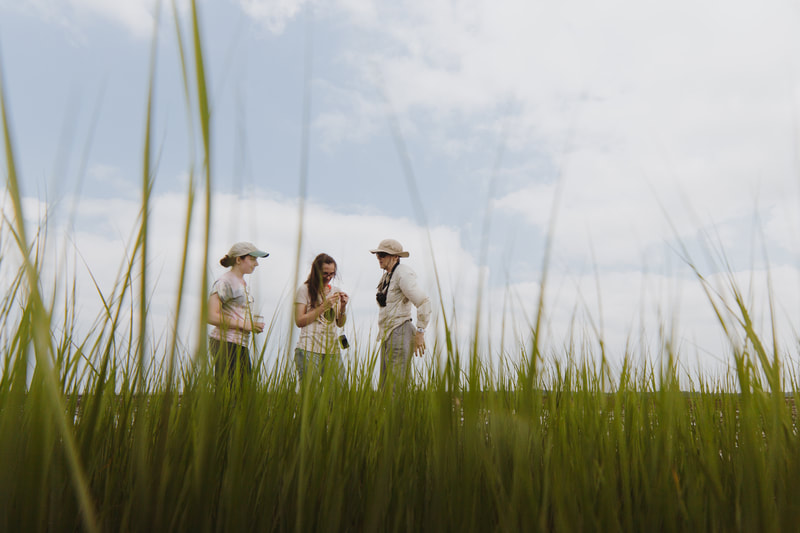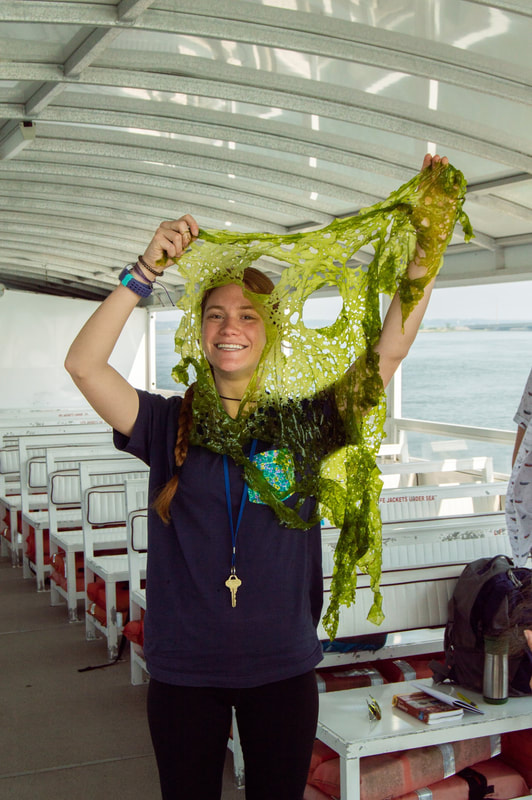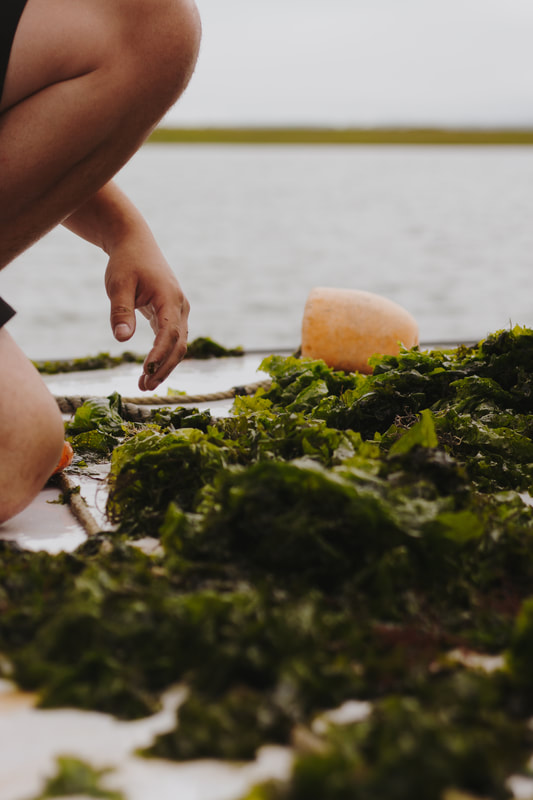MARINE BOTANY - BIO 312
DR. ANNE BOETTGER - WEST CHESTER UNIVERSITY
Course Description:
This course explores the startling diversity and environmental dynamics of micro- and macroalgae, seagrasses, mangroves, and salt marshes as well as phytoplankton (minute, free-floating photosynthetic planktonic organisms) and benthic communities (attached plants) that comprise the flourishing botanical garden submerged in and around the surface of our vast oceans. Fieldwork will focus on identification, ecology and human uses of the marine micro- and macroflora along the US East Coast.
Marketable Skills Gained from This Course:
General Description of Field Activities:
Field Activities will include trips to the following environments:
Approximate Amount of Course Time Spent in Field:
50%
Prerequisites:
None
Required Textbook or Supplies:
A Field Guide to the Atlantic Seashore: From the Bay of Fundy to Cape Hatteras (Peterson Field Guides)
by KL Gosner (Author, Illustrator), RT Peterson (Editor). ISBN-10#:061800209X OR
Atlantic Seashore Field Guide: Florida to Canada. J. Duane Sept. Stackpole Books. ISBN-10: 0811714217
Background text: Algae. LE Graham, LW Wilcox. Benjamin Cummings. ISBN -10# 0136603335.
Marine Botany. CJ Dawes. Wiley. ISBN -10# 0471192082. (both not mandatory)
Number of Students:
6-13
2024 Chincoteague Bay Field Station Fee*:
3 week course; housing and meals included
Salicornia; $1,794
Traditional; $1,644
* Does not include university tuition or fees. For specific policy on CBFS fees, click HERE.
This course explores the startling diversity and environmental dynamics of micro- and macroalgae, seagrasses, mangroves, and salt marshes as well as phytoplankton (minute, free-floating photosynthetic planktonic organisms) and benthic communities (attached plants) that comprise the flourishing botanical garden submerged in and around the surface of our vast oceans. Fieldwork will focus on identification, ecology and human uses of the marine micro- and macroflora along the US East Coast.
Marketable Skills Gained from This Course:
- Organismal identification including the identification of morphological features and their importance in specific environments
- Human uses of marine autotrophs other than the obvious oxygenation of the planet and the formation of the bottom of the food pyramid
- Techniques for culturing algal species for Aqua- and Mariculture
- Harmful algal bloom predictions and their importance in changing climates
- Collection and preparation of Herbarium specimens, which is particularly difficult in marine algae containing heavy amounts pf mucilage
- Teamwork, written and communication skills which are important skills, not only for Marine Biologist but for any future Scientist
General Description of Field Activities:
Field Activities will include trips to the following environments:
- Sandy and muddy environments, i.e. Wallops Island Beach (sheltered, sandy), Tom’s Cove (muddy, sheltered) and Assateague Beach (sandy, exposed) for collection of cyanobacteria, dinoflagellates and diatoms.
- Rocky environments such as those found at Indian River Inlet, Ocean City Maryland (exposed, high currents) will provide habitats for species displaying capabilities of attachment including cyanobacteria, pennate diatoms and all macroalgae.
- Saltmarshes such as those found in Assateague State Park, the Chincoteague National Wildlife Refuge and Guard Shore will introduce students to marsh ecosystem dwellers, including animals that feed on the autotrophs.
- Seagrass beds such as those found within Chincoteague Bay to examine reproductive features of seagrasses and determine different seagrass community members.
- Dunes, such as the ones at Savage Neck and on Assateague, will allow students to examine the transition from terrestrial vegetation to maritime forest communities to dune plants.
- In addition, boat and kayak trips will allow the class to members of the phytoplankton and establish depth profiles and autotrophic organisms found at different depths.
Approximate Amount of Course Time Spent in Field:
50%
Prerequisites:
None
Required Textbook or Supplies:
A Field Guide to the Atlantic Seashore: From the Bay of Fundy to Cape Hatteras (Peterson Field Guides)
by KL Gosner (Author, Illustrator), RT Peterson (Editor). ISBN-10#:061800209X OR
Atlantic Seashore Field Guide: Florida to Canada. J. Duane Sept. Stackpole Books. ISBN-10: 0811714217
Background text: Algae. LE Graham, LW Wilcox. Benjamin Cummings. ISBN -10# 0136603335.
Marine Botany. CJ Dawes. Wiley. ISBN -10# 0471192082. (both not mandatory)
Number of Students:
6-13
2024 Chincoteague Bay Field Station Fee*:
3 week course; housing and meals included
Salicornia; $1,794
Traditional; $1,644
* Does not include university tuition or fees. For specific policy on CBFS fees, click HERE.




